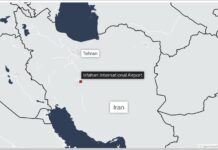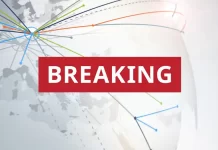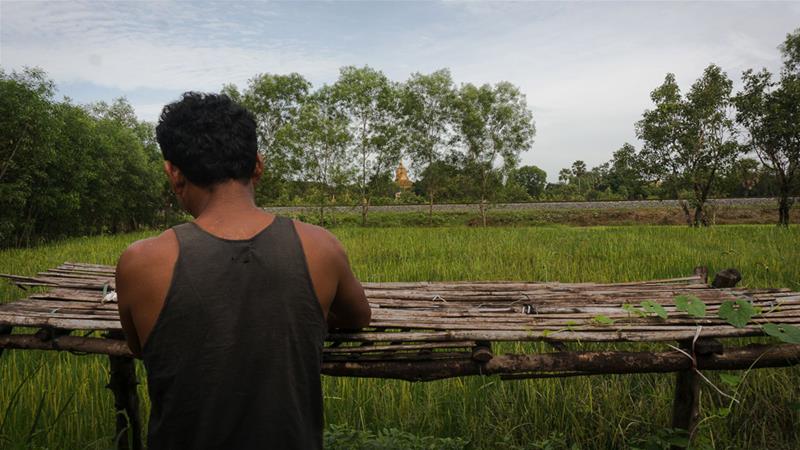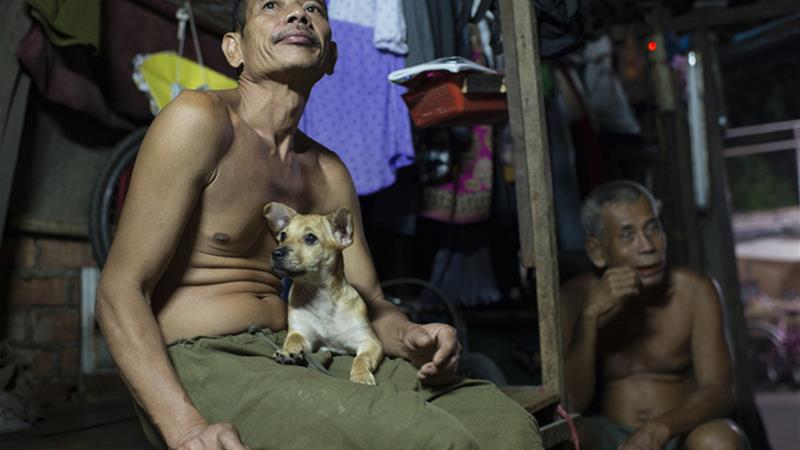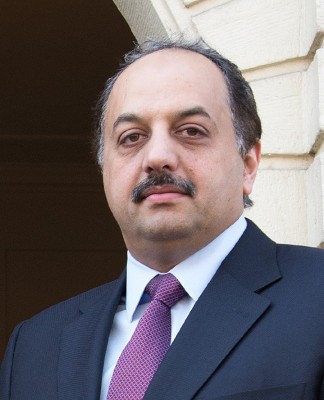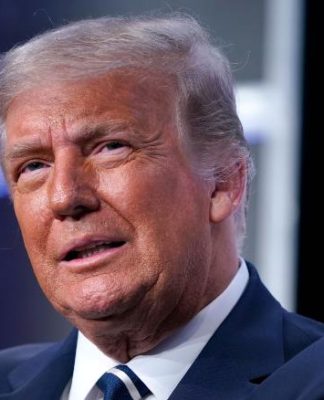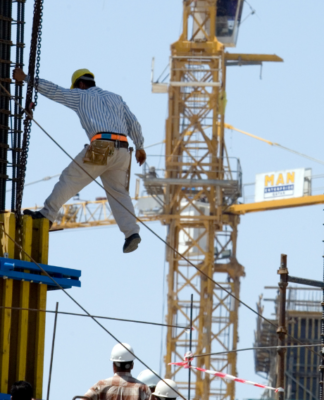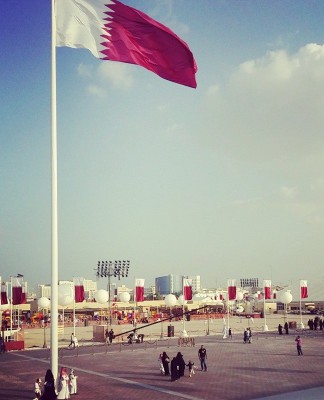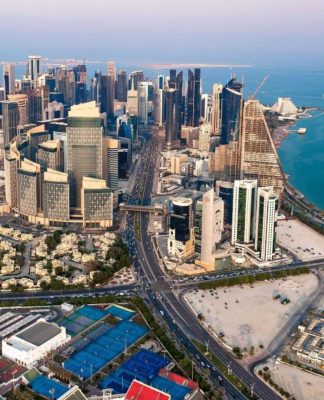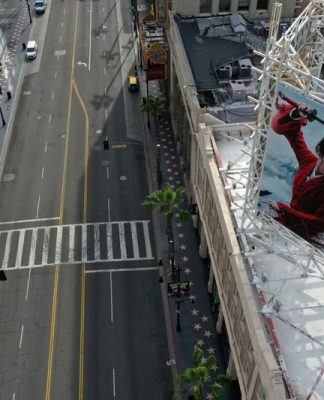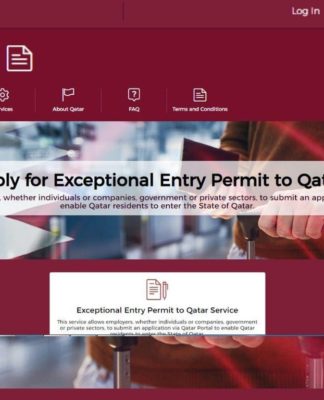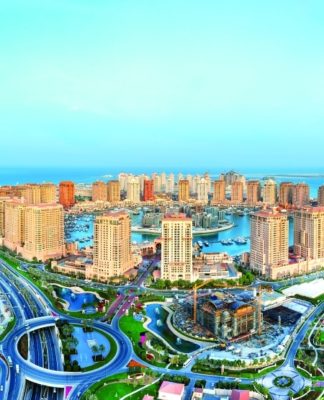Sunday’s vote has been widely criticised as rural voters fear reprisals for going against Hun Sen’s long-ruling CPP.

Treang, Cambodia – Damo zipped up the canvas door tight and squatted on the concrete floor of the empty building in the middle of his rice fields. He said he did not trust his neighbours if they overheard what he was about to say.
Damo, who asked his real name not be used fearing reprisals, wants political change in Cambodia – an extremely dangerous aspiration. He is worried about authorities from the ruling Cambodian People’s Party (CPP) persecuting his family.
“They have spies everywhere,” he said. “They find out what party people support and report back to the CPP. The ruling party controls everything and can make life very difficult for us.”
He and several other opposition supporters interviewed for this story said their passport applications could be rebuked, marriage registrations delayed, and the legal system weighted against them.
The Cambodian election on Sunday has been widely denounced by rights groups.
Human Rights Watch said it was “meaningless” because the CPP’s leader, Prime MinisterHun Sen – who has ruled the country for 33 years – had “effectively eliminated all political opponents and dissolved the main opposition party”.
 |
| A young CPP supporter at a rally in Phnom Penh on July 22 [Nathan A Thompson/Al Jazeera] |
Ousting the opposition
The now-defunct opposition Cambodia National Rescue Party (CNRP) won 44 percent of the vote in the last elections in 2013, and followed up with a similarly strong performance in the 2017 commune elections.
Then CNRP leader Kem Sokha was jailed for treason and the party dissolved by a court packed with government allies.
Some 19 opposition parties remain, the largest being the Grassroots for Democracy Party, which won five seats in the commune elections – compared with 5,007 for the CNRP and 6,503 for the CPP. Its cofounder, Kem Ley – known for roasting both parties on popular radio shows – was shot dead while drinking his morning coffee in 2016.
The other parties are so small there is a phrase for them in the Khmer language: “ambul ambik”, which means “fireflies”, as they’re here today and gone tomorrow. But Kong Monika, president of the fledgeling Khmer Will Party, disagreed.
“Whenever a small party is created they call it a firefly,” he told Al Jazeera. “But they said the same when Kem Sokha created the Human Rights Party in 2007. They said it was a puppet of the CPP, but he combined with the Sam Rainsy Party to create the CNRP in 2012 – and made a big difference.”
The 36-year-old said he’s hoping to get a foot in the door this election and grow his influence from there. But he’s struggling to get his message to the voters because the CPP has a stranglehold on the nation’s media.
 |
| Kong Monika, president of the new Khmer Will Party, said it is not a non-entity [Nathan A Thompson/Al Jazeera] |
Sam, who withheld his last name for security reasons, from the Prey Sloek commune in Takeo province is completely in the dark.
“I heard there are a lot of parties that joined this mandate. But I don’t have any information about them,” he said.
“For people in the countryside, it doesn’t matter which party wins or loses; they are still in the rice field. This is the problem,” Sam said.
‘Propaganda of fear’
For Samedy Mon, an official from the Council of Ministers, Sam and Damo are victims of propaganda spouted by exiled CNRP leaders. “The CPP is like a parent. The parent still loves their child, even if they vote for another party.”
“People don’t need to be scared,” Mon continued. “People who are not pro-government spread the propaganda of fear so people will not trust the government, but in fact, there is no threat.”
Phay Siphan, spokesman for the Council of Ministers, echoed his staffer’s sentiments.
“Intimidating voters is illegal. Any CPP official who is doing that should be dealt with,” he said.
The CPP has millions of supporters in Cambodia who credit the party with dragging the country from the pits of war and growing the economy at a rate of 7.6 percent per yearover the last two decades. However, much of this wealth has been redirected to leader Hun Sen and his close circle of cronies, according to a recent report from rights watchdogGlobal Witness.
“[Hun Sen] has presided over a kleptocratic system of state looting that has involved the forced and violent eviction of Cambodians to free up land for tycoon-dominated industries,” it said.
 |
| Cambodia has a Muslim minority, many of whom are from the Cham ethnic group [Nathan A Thompson/Al Jazeera] |
Punishing abstainers?
Damo is afraid of being similarly victimised if he does not vote. “Hun Sen said if we do not vote, we will be put in prison,” he said.
The Cambodian prime minister has not issued this exact threat, according to English-language reports.
However, in a recent speech, Hun Sen said boycotting the election would be illegal underArticle 142 of the Cambodian Criminal Code – though that provision only carries fines as punishment.
Whether or not he understands the technicalities, Damo does understand of the crux of the situation.
“Whatever Hun Sen says, he can do. He can do everything,” he said.
SOURCE: AL JAZEERA NEWS





